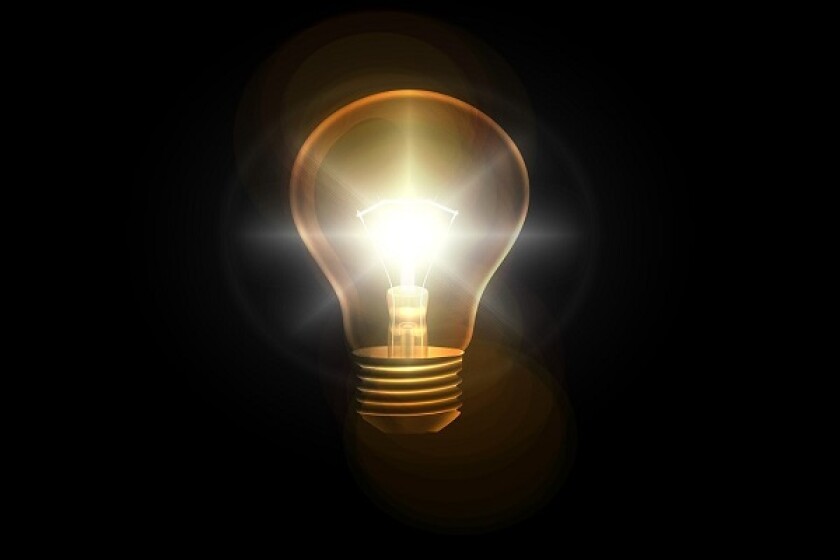Can an artificial intelligence (AI) be named as an inventor? This question was brought before Taiwan’s Intellectual Property and Commercial Court (IPC Court) this year, and the judges’ answer was a loud and clear ‘no’ rather than a hesitant ‘not yet’ (Thaler v Taiwan IP Office (TIPO), 110 Xing Zhuan Su 3, Taiwan’s IPC Court (August 2021)). The AI inventorship issue had never been addressed in a Taiwan court before this case.
Delivered on August 19 2021, this decision upheld the Taiwan IP Office’s ruling that rejected a Taiwan application filed by Stephen Thaler based on European patent 18275174.3 for “Devices and Methods for Attracting Enhanced Attention.” In the application, DABUS (an AI system developed by Thaler’s team) was named the sole inventor.
Thaler candidly disclosed that “this invention was invented by DABUS which is an artificial intelligence system and the sole inventor. Namely, this invention was not invented by a human inventor”. In the administrative litigation, he further asserted that DABUS conceived this invention independently.
IPC Court’s reasoning
Although Taiwan’s Patent Law does not explicitly preclude a non-human inventor, the IPC Court decision cited some of the most important bylaws to affirm this rule.
First, it is stated in the Patent Examination Guidelines that an inventor must be a human, or a natural person in the legal term. Further, the Enforcement Rules of the Patent Law require disclosure of an inventor’s name and citizenship/nationality in a patent application; this formality requirement was found by the court to be aiming to protect human inventors’ personality rights.
Turning to the legislative intent and the policy of the Patent Law, the IPC Court averred that the patent system is designed for the encouragement and protection of the fruits of human’s mental activities. In light of this, an inventor can only refer to a human who completes an invention through ‘(human) mental creation’. AI is not a human, and not even a juridical person. It is merely a ‘thing’ and a thing can only be an object rather than a holder of rights, the court said.
As the court hearings for this case ended on July 29 2021 and no new evidence was allowed thereafter, the court had no chance to consider Thaler’s recent win in Australia, where on July 30 2021 he successfully convinced the Australian Federal Court that an AI may be an inventor. However, even if the Australian court decision had had a chance to enter the IPC Court, its reasoning might not fit into the Taiwanese context.
In Taiwan’s patent law, the Chinese term for the word inventor literally means “an invent-person”, which leaves little room, compared to “inventor,” for a broader interpretation (such as that rendered by the Australian court) viewing it as an agent noun not necessarily linked to a human being.
Juridical persons
Another interesting point is that, as Taiwan’s Copyright Law provides, an author can be a juridical person, like a corporation. But juridical persons are not human beings and hence not qualified inventors in the realm of patent law. This inconsistency appears more challenging when authors are compared with designers.
Under the practices and bylaws of the Patent Law which govern designs, only a human can be a designer, but a design is sometimes also a copyrightable work and they share the same creator. Pointing out this inconsistency, Thaler’s attorneys asked: why cannot the Patent Law accept non-human inventors just as the Copyright Law accepts non-human authors? The IPC Court, however, chose not to address this argument, possibly because, even if it was held to be correct, it could at best lead to the conclusion that a juridical person can be named as an inventor, but AIs are not juridical persons.
Whatever the outcome, Thaler and his team displayed remarkable spirit of fair play in this case by voluntarily and unambiguously revealing DABUS’s AI identity and its contribution in the invention.
In a Taiwanese patent application, inventor information required by TIPO is limited to an inventor’s citizenship/nationality, name, and Chinese translated name only. No disclosure beyond this point is required, and no submission of an assignment from the inventor is needed unless and until the applicant’s standing is challenged, yet only a person asserting to be the ‘genuine applicant’ is allowed to make this challenge.
When all these facts are put together, it becomes possible for an identity-concealed AI to be taken as a human inventor in an application, especially when its name sounds like a human. The critical issue might turn out then to be the nationality of AI – can AI have a nationality (like a vessel)? – DABUS was described as stateless in the Taiwan application, but a stateless inventor always rings an alarm to examiners even before AIs are employed in innovation.
All in all, what can be said of the current legal system of Taiwan is that even if an AI passes the Turing test now, it may still have difficulty passing the inventor test. Yet the tricky part is that an AI disguised as a human may pass at least the formality examination unnoticed in a patent application. This is something the IP community should all watch out whichever stand we take on the question of whether an AI can be named as an inventor.
Tony TY Chang
Patent attorney, Saint Island International Patent & Law Offices
E: siiplo@mail.saint-island.com.tw












